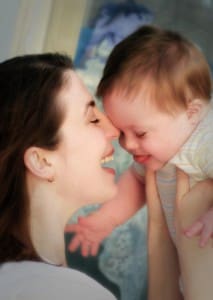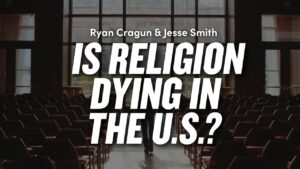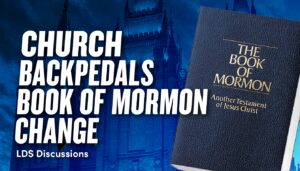 Kathy Soper is a mother of seven, memoirist, essayist, editor, nonprofit CEO, practicing Mormon, depression survivor, Down syndrome advocate, Greek-blooded American, Maryland-bred Utah transplant, WordTwist addict and BSG groupie. (Not necessarily in that order.)
Kathy Soper is a mother of seven, memoirist, essayist, editor, nonprofit CEO, practicing Mormon, depression survivor, Down syndrome advocate, Greek-blooded American, Maryland-bred Utah transplant, WordTwist addict and BSG groupie. (Not necessarily in that order.)
She has edited numerous books, including Dance With Them: 30 Stumbling Mothers Catch Glimpses of Grace and The Mother in Me—anthologies of personal essays and poetry written by mothers about the challenges and joys of mothering. She is the editor of Gifts: Mothers Reflect on How Children With Down Syndrome Enrich Their Lives and Gifts 2: How People with Down Syndrome Enrich the World. Kathy is also the editor-in-chief of Segullah: Writings by Latter-day Saint Women, which is a print journal dedicated to encouraging literary talent and promoting greater faith and understanding among Latter-day Saint women as well as a blog.
Kathy’s most recent book, The Year My Son and I Were Born, is a memoir of the transformations Kathy underwent the year after her son Thomas was born with Down Syndrome. Kathy’s website says that it’s a story about coming to terms with being human and learning how to deal with hard surprises.
Visit Kathy’s website to purchase the book, watch a video montage of pictures of Thomas and Kathy’s other children, and get Thomas updates.
Kathy maintains a personal blog and also blogs at www.segullah.org.
Part 1
Part 2
Part 3




17 Responses
I have a BS and a MS in special education. I currently work with adults with Develop Mental disabilities most of whom have downs. I have had the opportunity to work within some of these peoples homes for many years. They have invited me into their homes and lives, and they are some of my best friends. The diagnosis of downs, cerebral palsy, autism, etc. may tell me a very small amount about their limitations or give me a few ideas of how to help them with specific things, but it tells me nothing about who they are as people. It does not tell me what they like to talk about; what jokes they may or may not appreciate; how they enjoy to spend their free time; how important their religious faith is in their life; what movies or sports the enjoy.
I had my degrees in special education each time I became a father of each of my three boys. Each of these times my wife was expecting I was keenly aware of my fear that our child would have a developmental disabilities. A year before our youngest a daughter came into our home I started working in a home for adults with develop mental disabilities. As my clients invited me to be part of their lives and in a real way part of their family They became my friends. I saw my friends in this home loving the work they did; enjoying the people they lived with; and giving to the people around them in their own unique way. I thought as a parent that if my children had these things in their lives as adults what other success would I want for them?
Any time we classify individuals and it gets in our way of looking at them as fellow travelers in the journey of life that classification is not very useful and deprives us of all we might learn from that individual.
I have only listened to the first part of this episode. I look forward to the next two. Thank you very much for sharing your story Katheryn.
Wow!! My name is Kathy Soper, although I just got married and am now Kathy Soper Stewart, and I also have a daughter, Maria, with Down’s Syndrome!!! I can’t wait to read your books! People with “Up Syndrome” are angels!!!!
That was a great episode. I think that Heather (is that right) did a great job of interviewing and I especially really appreciated Kathy’s perspectives on God and on parenting. While I don’t have a child with Down Syndrome, nor do I regularly interact with anyone who does, I think that many of her insights were valuable and applicable to any parent. I especially appreciated her insights about letting go of the need to micro-manage your children, to make them “perform” in a way that you think they need to in order for them (and you) to be happy. Rather, you need to trust in their own innate goodness and help them develop that as best they can or even just stay out of their way and let it happen. Awesome message—especially for Mormon women. I’m going to share this episode with some of the fellow women in my life.
Very nice podcast Heather and Kathryn. It was lovely to hear the voices of you thoughtful women in my ears as I took my afternoon walk. I can’t imagine the challenge of raising a child with Down Syndrome and Autism. (I’ve seen three other children with these dual diagnoses in special education evaluations I’ve been involved with.)
Along the lines of what Kathryn said, it is these kind of trials that break us open to a new understanding of life and our place in the universe. Kathryn, thank you for sharing this experience and giving us a taste of the insights you have gleaned from it.
Is there a place that has a written transcript of these messages? I hope to read them as I don’t have computer speakers, will try to get them fixed but just curious if it is possible to access this via that format. Thanks!
i really enjoyed this , however there were a couple things that bugged me. . First of all, i felt like the interviewer spent a little too much time telling her own stories. Also, she talked about a Friend that said across the top, “We do not doubt” – and then she was criticizing it saying that we shouldn’t feel guilty about doubting. I agree and I don’t think the Friend was trying to say we should never doubt. I’m pretty sure that was a quote from a book of mormon scripture talking about the stripling warriors. Could be wrong, but that’s my guess. I think it would be helpful for the interviewer to realize that her perception of what “the church” is trying to teach is not necessarily what others’ perceptions are. and i don’t think the idea that “we shouldn’t doubt” is something that the doctrines church or the prophets teach.
Ah, yes. I’m the interviewer and I agree that I talked too much. It’s an ongoing character flaw. ;) Sorry, Kathy and MS listeners!
Re: The Friend magazine. Since they’ve started archiving stuff on-line, I’ve stopped saving them, so I can’t try to flip through to find it. I hope that you are right that “we shouldn’t doubt” isn’t something that the doctrines or prophets teach, but I’m not sure . . . When a children’s magazine publishes something with “We do not doubt” across the top, I feel like that’s the message that is getting transmitted to the kids who are reading it. Two out of my three kids are still primary age. If they were to read that message, they wouldn’t read a whole lot of nuance into it. They would take it at face value, as would many other children.
If someone can find the thing I’m talking about and show me that I’m wrong, I’ll happily concede. But it’s something that bothers me. Our religion started with a seed of doubt in Joseph Smith’s head, after all. So it seems like if we want to emulate his curious/inquisitive spirit, we should encourage questioning and dialogue and yes, even doubting.
That’s my bad! Heather kept insisting to me to take her stories out of the edit…but I loved them too much.
MY BAD COMPLETELY!
And Heather…I wouldn’t change a thing. I think you are charming, witty, poignant (sp?) and brilliant
I really liked the interaction between Heather and Kathy. It felt informal, yet intimate. This has been one of my favorite podcasts. The main topic was disability, but it spoke to the heart of how we should all treat each other, and the essence of who we really are.
I am not sure if it was in Mormon Doctrine, or in some of Bruce R. McConkie’s talks, but he often said that” Doubt was of Satan”. It is implied in our dogma that we are faithful when we don’t question…”Once the prophet speaks the conversation is over etc…” I love these thoughts by Paul Toscano….
Doubt and faith are twin offspring of genuine spirituality. True spirituality is a free mind that practices irony and compassion. Without doubt, faith hardens into arrogance. Without doubt, we cannot doubt ourselves, our assumptions, aspirations, expectations and predispositions. Without self-doubt, we cannot question our righteousness;we cannot repent;we cannot forgive. Without doubt, we cannot tolerate the unfamiliar. Without doubt, we cannot criticize the power structures that serve us and afflict others.
Perhaps faith is to give God the benefit of the doubt. Perhaps doubt is to restrain the narcissism of certainty. For me, the bread of doubt is as sacred as the water of faith. Together they form a Eucharist of hope, a wellspring of charity-a love that is neither partial nor sentimental, but simply the heart’s desire that God’s love falsl like rain in equal measure upon the just and the unjust, that no one claim a blessing one would withhold from another or impose a burden one would not bear oneself.
From, The Sacrament Of Doubt
I haven’t had a chance yet to listen to these, but wanted to share my thoughts on the concept of doubt. I think that in our doctrine, doubt is a negative, but questions are not as long as they are asked in faith and built on testimony. I don’t think Joseph Smith doubted at all; he had questions, yes, but it was his faith that got him to the grove.
I think this from Pres. Uchtdorf sums it up well:
“Inquiry is the birthplace of testimony….Asking questions isn’t a sign of weakness, it’s a precursor of growth…. God commands us to seek answers to our questions and asks only that we seek with a sincere heart, with real intent, having faith in Christ…. Fear not to ask questions…but doubt not. Doubt not…. Always hold fast to faith and to the light you have already received. ”
(That whole section of his talk is very relevant — I’d recommend reading it all.)
Ooops! I’m sorry for being the instigator of this side topic of “doubt”. I want to apologize to Heather and Kathryn for not emphasizing more of what I liked. I wrote the last comment hastily (hence the typos) and now regret it. I REALLY enjoyed the interview, even with your sometimes lengthy personal stories HEather ;) I think we need to all realize that we can never fully understand someone’s perspective , and especially not through disjointed comments left online. I DID learn much about the need to LISTEN and not judge when others are suffering. I also felt strengthened to know that I am not the only mother who struggles with her own weaknesses. thank you!!
Shannon, no worries. I know I’m a talker. And for the record, I DID tell John more than once (correct me if I’m wrong, John) to cut some of my stuff out. I’m of course glad if anyone else benefits from it, but I also selfishly benefited from it because Kathy is a treasure. I felt enriched by interacting with her. She is so genuine. Really, she’s the real deal.
Also, I think the “doubt” question is worth discussing. It’s not easy, but that doesn’t mean we should shy away from it.
Great interview. Heather’s stories definitely add for me. I don’t have a child with Down Syndrome (but my good friend does) so it is good to see how Heather integrates Kathy’s experiences into her own beliefs. Fascinating to listen to that integration happening “real time”. I’d love to hear more like this.
Heather, I really loved your interviewing style, your voice, and your perspective. I appreciated your stories and thought they made the interview more complete. I also think doubt is a wonderful thing. Sir Francis Bacon said, “If a man will begin with certainties, he shall end in doubts; but if he will be content to begin with doubts he shall end in certainties.”
Kathryn, I didn’t expect to be so interested in this podcast, but once you began telling your story, I couldn’t stop listening! I too have come to many of the same conclusions you have regarding disabilities, challenges, and the neat and tidy explanations we are sort of taught to believe. I haven’t been able to articulate them as well as you did, so I am very grateful for your courage and willingness to share so much of your experience and wisdom with us. Thank you!
My newest niece has down syndrome and I am constantly interested in learning as much as I can in order to be the best sister and aunt I can be! Even from afar! This was a valuable podcast for me. I learn so much from Mormon Stories. I love it!! Thank you!
Hi All
Wonder if anyone can help me ?
Ive been searching for a poem I once heard about a family that had a child with Down Syndrome.
The poem speaks of the child being here not to be tested but here to test ” you will sift out thr best of my people” any help finding it would be really appriciated. Thank you x